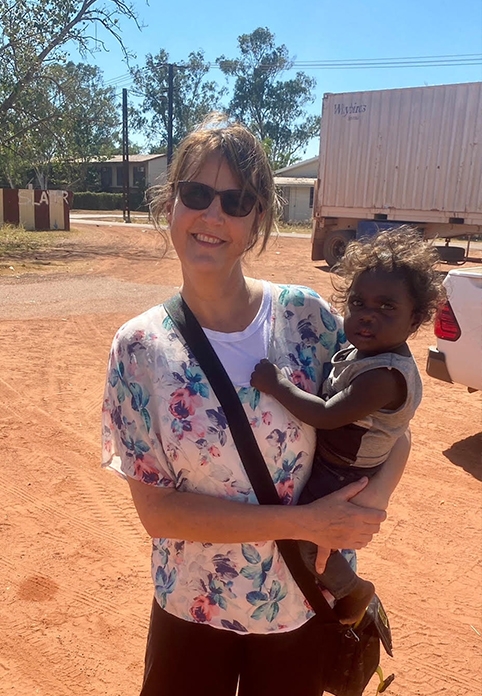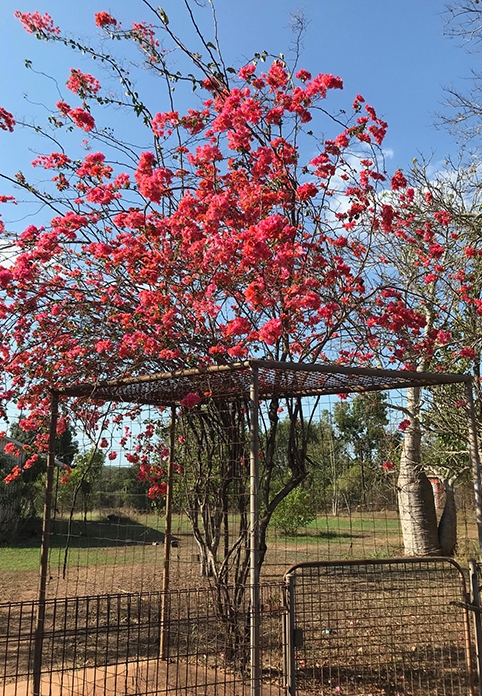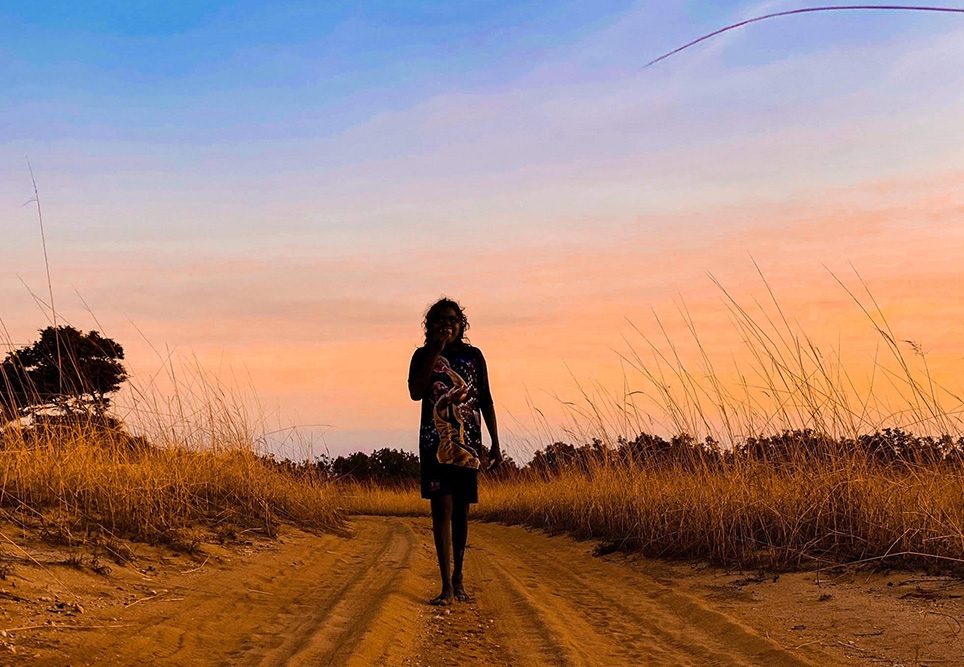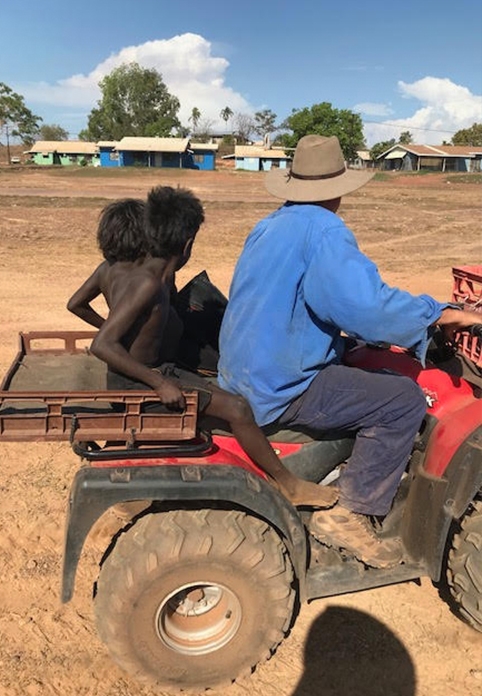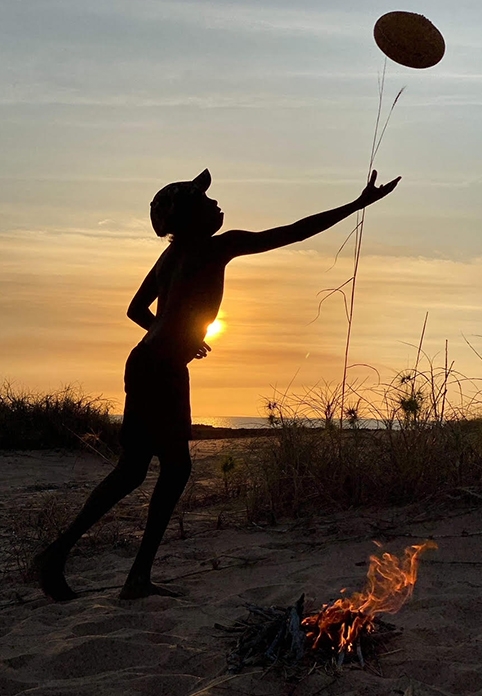This site may not work properly using older versions of Edge and Internet Explorer. You should upgrade your browser to the latest Chrome, Firefox, Edge, Safari, or any other modern browser of your choice. Click here for more information.
Your Stories
This is where we tell your stories, cover topical issues and promote meaningful initiatives.
Julie's life-changing experience as a remote area school nurse
CRANAplus Member and RN Julie Bamford reflects on the rewards and challenges of her four-year experience working as a school nurse in a remote community.
Going into work as a school nurse in a remote community, my goal was to provide quality holistic care to the students and school staff. When I first went to work in the community, I did not know what to expect and felt unprepared for the potential challenges that lay ahead.
I had heard a lot about the term ‘culture shock’ and wondered what that even looked like. Well, I can tell you ‘culture shock’ is real!
I had lived and worked in Darwin in the past so I thought “How different can working in a remote community be?” Nothing prepared me for the isolation, lack of resources and health challenges that I was presented with. I found it extremely confronting and at times, heartbreaking.
I knew very little about Rheumatic Heart Disease before this time. I questioned myself constantly, “What is it you want to achieve out here, Julie?”
The health issues that the community faced were huge. I found myself each day patching up wounds; treating infected scabies, strep throat, impetigo, burns, and otitis media; liaising with allied health professionals who visited monthly if we were lucky; organising Hearing Health visits; creating care plans for the children who had asthma, diabetes or who were growth faltering; administering Ritalin and administering LA bicillin to the RHD kids. These were just a few of the list of duties that I found myself doing.
One of the highlights (and there were many) was having the opportunity to go into the classrooms and educate students and local staff on the many health issues the community faced. I found this extremely rewarding and hoped that by educating the students and local staff that would have a ‘ripple’ effect in the community.
I was also very fortunate to have a good boss (principal) at the time who funded any professional development that I felt I needed further education on.
I was also extremely grateful to be chosen to participate in the Recardia Program that was run by Menzies and I spent a week in Darwin and then Maningrida learning how to do echocardiograms to look for mitral valve regurgitation in the detection of RHD.
Although, there were many highlights and adventures (such as having the privilege of going out on Country with wonderful families that I had formed connections with) I felt as if I was drowning in the never-ending sea of people that would come through my little clinic door.
It’s easy to say ‘delegate’ but being the only school nurse with a school population of 600 and often you were nurse to the students’ family members as well, not to mention the school staff who would visit during their school lunch or recess breaks which was also your break times. Then, there were the school staff who’d ring you after hours for medical advice or request you to come and see their dog.
You learnt very quickly to upskill and you became everything to everyone. You certainly learn to adapt to your environment and become inventive very quickly.
I certainly could not have done any of this successfully without the help of the Aboriginal Health Worker.
Aboriginal Health Workers are a wealth of local knowledge and often know where everybody lives, which child belonged to which family, and which houses to avoid if they have ‘cheeky dogs’, or if there is ‘sorry business’ going on.
I found that you learned very quickly that to survive out here you needed to develop relationships and earn the trust of the local people: without that, you don’t have a chance.
I learnt so much from the local people, resilience being one. I have so much respect for the grandmothers who without complaint often take on the role of looking after their grandchildren and keeping their families together and safe whilst often neglecting their own needs.
After four years in the remote community, I decided that I needed to be closer to family and in all honesty I was exhausted, mentally, emotionally and physically. I believe I had compassion fatigue and had become desensitised to living and working in challenging circumstances.
I can certainly say I have never experienced so much joy, sadness, despair, hopelessness and gratitude in the one place. I encourage anyone who has ever thought of doing remote nursing to go and do it. You won’t regret it. It is life-changing!
Despite common themes, every remote health journey is different. Read about the experiences of other nurses, such as power couple Jason and Melanie or retired nurse Sandra Vicary.
